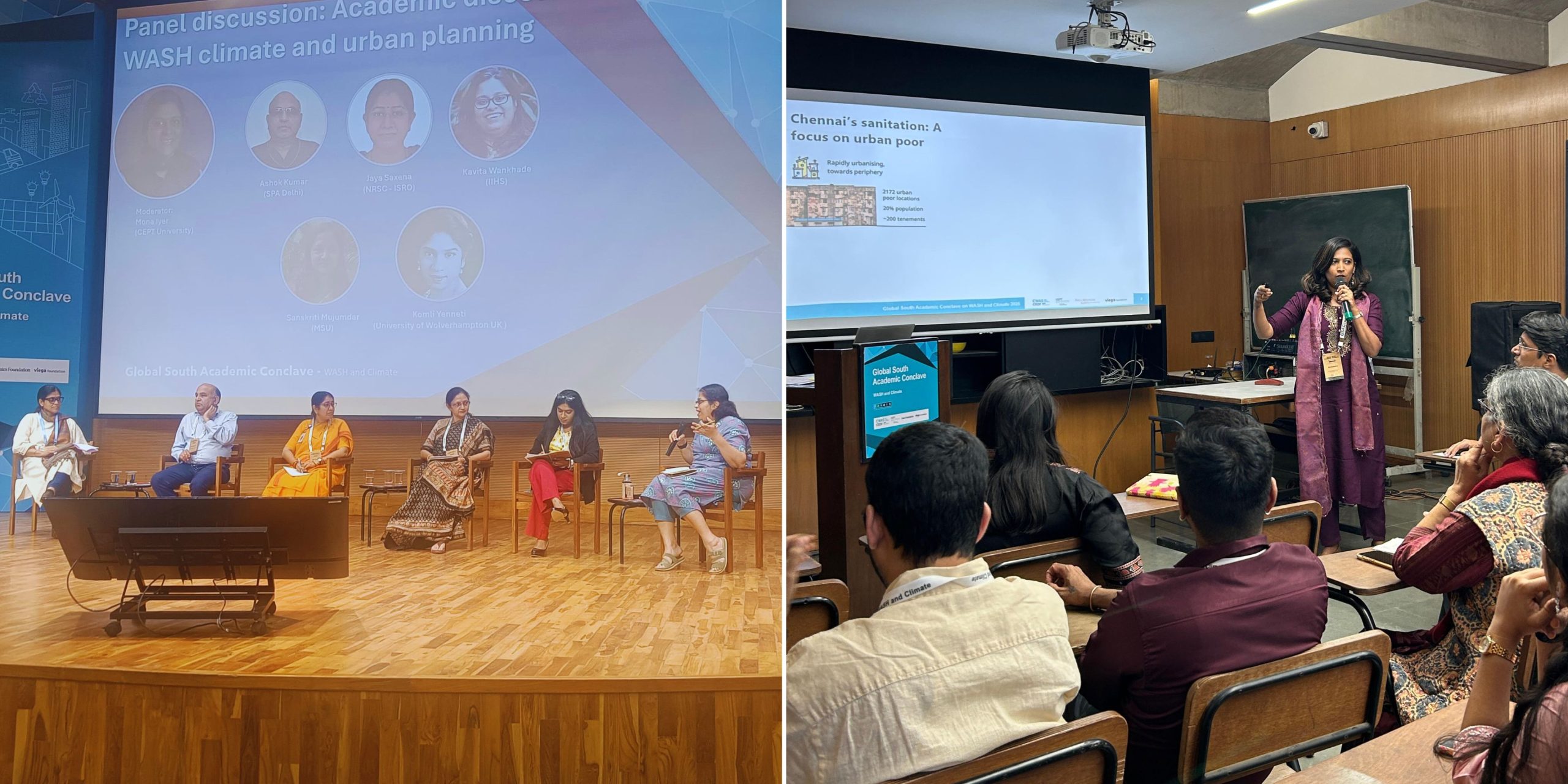IIHS was a part of the “Global South Academic Conclave (GSAC) on WASH and Climate 2025” from 21-23 February 2025, at the Centre for Environmental Planning and Technology (CEPT) University, Ahmedabad. The GSAC is organised by the Center for Water and Sanitation (CWAS), CEPT Research and Development Foundation (CRDF), and supported by the Viega Foundation and the Gates Foundation.
Kavita Wankhade – Panellist
Kavita Wankhade, Head – Practice (Governance & Services) and Associate Dean – School of Systems & Infrastructure, IIHS, and Project Director – TNUSSP, was a speaker in the panel discussion on ‘Academic Discourse on WASH, Climate, and Urban Planning’.
The discussion highlighted the evolving landscape of research and practice in WASH and climate and the need for collaborations to create practice-ready professionals. Kavita reflected on her journey through literature, noting that while gaps remain, there is growing evidence of research addressing real-world challenges—such as small and medium enterprises and O&M costs—signalling progress. She reiterated that despite the multidisciplinary nature of the research space, different disciplines—finance, technology, and governance—often operate in silos.
A key takeaway was the need for stronger linkages, with practitioners playing a more active role in research and writing. Institutions like CEPT and IIHS, which integrate practice, research, and teaching, were cited as crucial in fostering this middle path between academia and real-world implementation. She further added that the WASH community has long faced challenges in bridging these gaps, and there is potential for the climate change sector to learn from fields like public health, education, and management, where these connections are more structured.
Abhilaasha N – Verbal Presenter
Abhilaasha N, Specialist – TNUSSP, presented in the technical session on Inclusive and Climate-Resilient WASH for Vulnerable Communities, which featured research on addressing sanitation challenges in Chennai’s urban poor settlements, supported by the HCL foundation. The presentation discussed sanitation access, infrastructure, and service delivery – in the context of climate risks such as flooding, heat stress, and water scarcity.
The study, based on field surveys, stakeholder dialogues, and institutional reviews, highlighted key challenges: lack of household toilets, poor UGSS last-mile connectivity, and governance gaps. Findings underscored the need for data-driven planning, participatory approaches, and targeted interventions to improve WASH services in flood-prone and underserved areas.
By integrating urban poor needs into climate adaptation strategies, this research offers a replicable framework for inclusive urban resilience, positioning Chennai as a model for climate-responsive sanitation planning.


Leave A Comment
You must be logged in to post a comment.